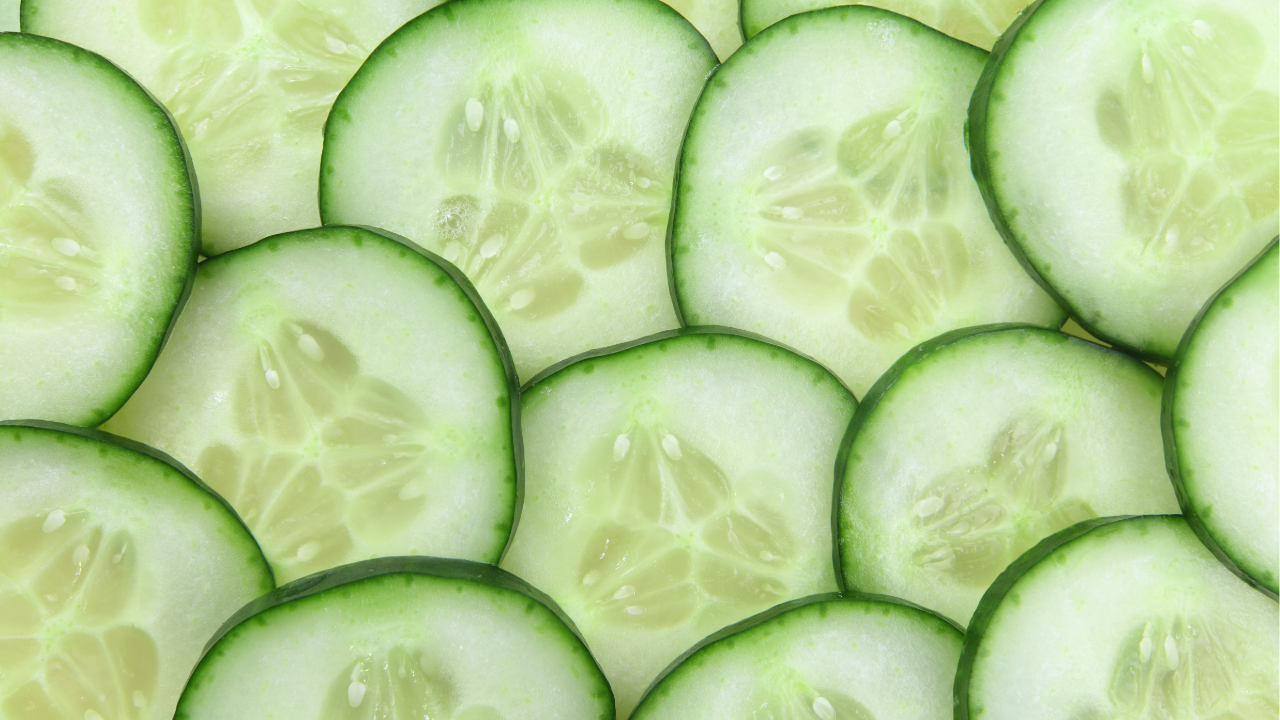Cucumbers are often touted for their refreshing taste and crunchy texture, but are they truly beneficial for your health? Let’s explore the various aspects that make cucumbers a nutritious addition to your diet.
Are Cucumbers Good For You?
1. Hydration
Cucumbers are composed of over 95% water, making them an excellent hydrating food choice. Staying hydrated is essential for maintaining overall health and bodily functions.
Cucumbers are a hydrating snack that can contribute to your daily fluid intake, helping to prevent dehydration and support optimal body functions. Incorporating cucumbers into your diet can be particularly beneficial during hot weather or after physical activity when hydration needs are increased.
2. Nutrient Profile
While cucumbers are low in calories, they are rich in essential nutrients such as vitamin K, vitamin C, potassium, and dietary fiber. These nutrients play various roles in supporting overall health and wellbeing.
Despite their high water content, cucumbers provide a surprising array of vitamins and minerals, including vitamin K, which is important for bone health and blood clotting, and vitamin C, which supports immune function and collagen production. Additionally, the potassium content in cucumbers helps regulate blood pressure and maintain proper muscle function.
3. Digestive Health
The fiber content in cucumbers aids in digestion and promotes regular bowel movements, contributing to digestive health and preventing constipation.
Cucumbers contain both soluble and insoluble fiber, which adds bulk to the stool and helps food move through the digestive tract efficiently. Including cucumbers in your diet can support a healthy gut microbiome and alleviate digestive discomfort.
4. Weight Management
Due to their low calorie and high water content, cucumbers are an ideal food for those looking to manage their weight.
Incorporating cucumbers into meals and snacks can help increase feelings of fullness and satisfaction without adding excess calories. Additionally, their crunchy texture provides a satisfying munch, making them a great alternative to higher calorie, less nutritious snacks.
5. Skin Health
Cucumbers are often used in skincare products for their soothing and hydrating properties. Consuming cucumbers regularly can also benefit your skin from the inside out.
The high water content in cucumbers helps keep the skin hydrated and supple, while vitamin C promotes collagen production, which maintains skin elasticity and prevents premature aging. Furthermore, cucumbers contain silica, a mineral that contributes to healthy skin, hair, and nails.
6. Heart Health
The potassium and magnesium content in cucumbers can help regulate blood pressure and support heart health.
Potassium is essential for maintaining proper fluid balance in the body and plays a crucial role in regulating blood pressure. Magnesium, on the other hand, helps relax blood vessels, improving blood flow and reducing the risk of cardiovascular disease.
7. Antioxidant Properties
Cucumbers contain various antioxidants, including flavonoids and tannins, which help neutralize harmful free radicals in the body.
Antioxidants protect cells from damage caused by oxidative stress, reducing the risk of chronic diseases such as cancer and cardiovascular disease. Including cucumbers in your diet can help boost your antioxidant intake and promote overall health and longevity.
8. Bone Health
The vitamin K content in cucumbers is beneficial for bone health and may help reduce the risk of osteoporosis.
Vitamin K is involved in bone metabolism and helps regulate calcium levels in the body, which is essential for maintaining strong and healthy bones. Incorporating cucumbers into your diet can complement other bone-supporting nutrients and promote skeletal health.
9. Blood Sugar Control
Cucumbers have a low glycemic index, meaning they have minimal impact on blood sugar levels, making them a suitable choice for individuals with diabetes or those looking to manage their blood sugar levels.
The fiber content in cucumbers slows down the absorption of sugar into the bloodstream, helping to prevent spikes and crashes in blood sugar levels. Including cucumbers in balanced meals can contribute to stable energy levels and improved glycemic control.
10. Versatility in Cooking
Cucumbers are incredibly versatile and can be enjoyed in a variety of ways, adding flavor, texture, and nutrition to dishes.
From salads and sandwiches to smoothies and soups, cucumbers can be incorporated into countless recipes, enhancing both taste and nutritional value. Experimenting with different cooking methods and flavor combinations can help you reap the benefits of cucumbers while enjoying delicious meals.

